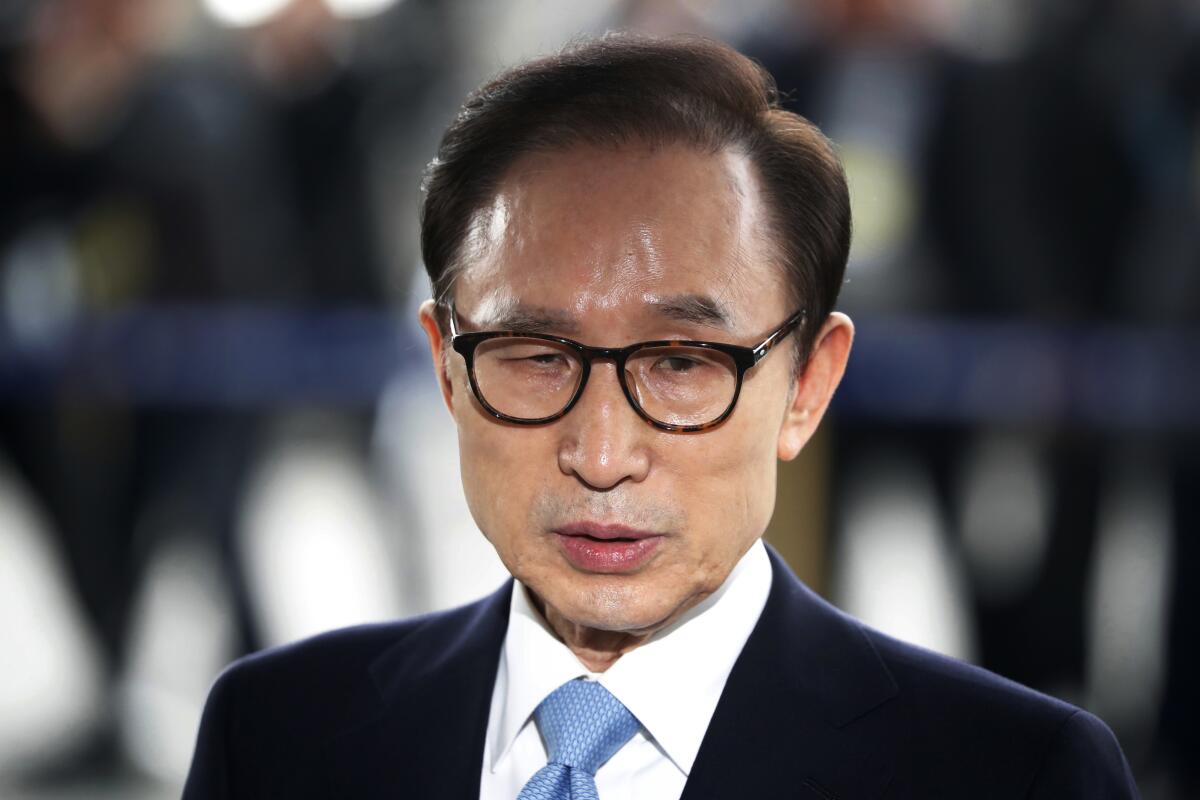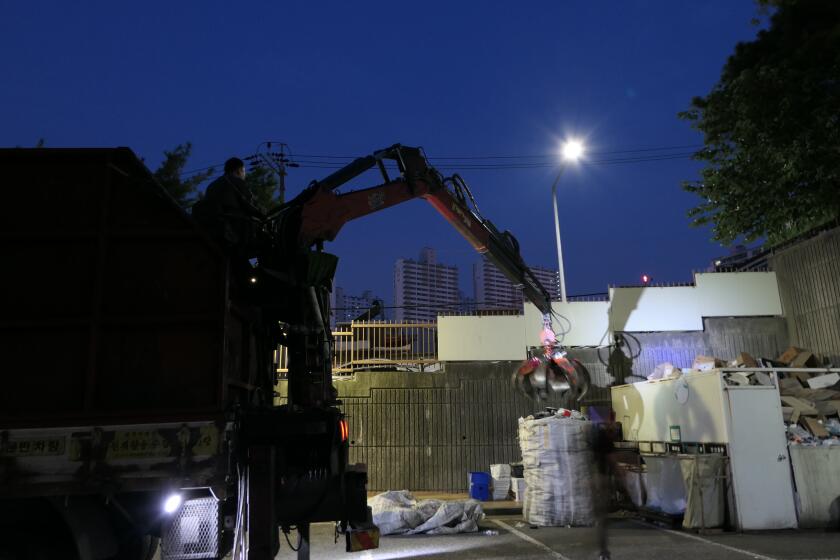South Korea’s high court upholds ex-president’s 17-year prison sentence

- Share via
SEOUL — South Korea’s highest court Thursday upheld a 17-year prison sentence for ex-President Lee Myung-bak on a range of corruption convictions, in a final ruling that will send the former leader back behind bars soon.
Lee was convicted of taking bribes worth millions of dollars from big companies such as Samsung, embezzling money from a company he owned and taking bribes from South Korea’s spy agency. The crimes occurred before and during his 2008-13 presidency.
The Supreme Court also confirmed a lower court ruling that ordered Lee to pay $10.9 million in fines and forfeit another $4.6 million for his crimes, court officials said. Thursday’s ruling is final and cannot be appealed.
Lee was initially sentenced to 15 years in prison in 2018. He was bailed out of jail several months later but was taken back into custody last February after an appellate court handed down a 17-year term and canceled his bail. He was released again six days later after he appealed that ruling on his bail cancellation.
The Supreme Court on Thursday upheld the bail cancellation. The Seoul prosecutor’s office did not immediately announce when it would send Lee back to prison. Local media reports said he would return to prison within three to four days.
The surge in plastic waste caused by the COVID-19 pandemic may push over the edge an already fragile ecosystem of recycling plastic, already strained by falling oil prices and interruptions in the global trade in recyclables.
Lee, 78, was South Korea’s first president with a business background and once symbolized the country’s economic rise. He began his business career with an entry-level job at Hyundai Group’s construction arm in the mid-1960s, later rising to CEO of 10 companies under the Hyundai umbrella. He led the group’s rapid rise at a time when South Korea’s economy grew explosively after the 1950-53 Korean War.
Lee served as mayor of Seoul, then won the 2007 presidential election amid public hopes of an economic revitalization. But his five-year term was marred by the global financial meltdown, huge street protests over the resumption of U.S. beef imports and military tensions with North Korea.
Lee’s corruption case erupted after his successor and fellow conservative Park Geun-hye was ousted and sent to jail over a separate 2016-17 scandal. The back-to-back presidential scandals have deeply hurt conservatives in South Korea and deepened a national political divide.
More to Read
Sign up for Essential California
The most important California stories and recommendations in your inbox every morning.
You may occasionally receive promotional content from the Los Angeles Times.













